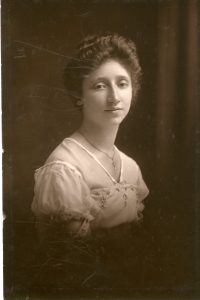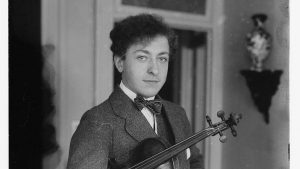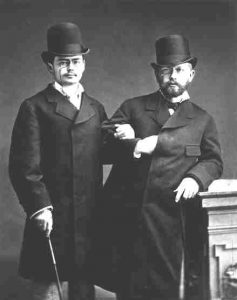
As I know I’ve mentioned all-too-many-times, my paternal grandmother, Bessie Hurwitz Greenberg, graduated in 1916 with a degree in piano from the New York Institute of Musical Art (renamed the Juilliard School in 1926). For the next fifty-plus years, she tortured generations of piano students from her studio in Queens, New York, including my father and myself. She had been born in Brooklyn New York in 1894, about 12 years after her family immigrated to the United States from the Russian Empire (Minsk, in modern Belarus), as a result of the pogroms that erupted after the assassination of Tsar Alexander in 1881.

While my paternal grandfather, Sidney Greenberg – Bessie’s husband – was born in Elizabeth, New Jersey (Exit 13) in 1891, he also grew up in Brooklyn, New York. Like my grandmother’s family, Sidney’s family fled Belarus in the 1880s. Unlike my grandmother the musician, my grandfather was a jock: a fairly high-end track-and-field athlete and semi-pro baseball player who, according to family legend (myth?) turned down an invitation to the 1912 Olympic Trials because he couldn’t get the time off from work.
My grandfather went on to a successful career as an executive for a fabric company called Collins and Aikman in New York City’s garment district. That he was a jock and a businessman did not preclude him from loving music, which he did, particularly the violin. I was told that at some point in his youth he had played the violin, but had – to the gratitude of everyone around him – given it up. But he never gave up playing the “air violin” (with an expertise that rivals our greatest air guitarists) when he listened to his recordings of violin music, which was often.

Because of my grandparent’s “Russian” roots, they had a marked predilection for pianists and violinists who came from the territories that were part of the Tsarist Russian Empire. For my grandmother it was the pianists Sergei Rachmaninoff and Sergei Prokofiev; Sviatoslav Richter; Emil Gilels; and the ruling deity of them all, Vladimir Horowitz. For my grandfather it was the violinists Leopold Auer (1845-1930), who was born in Hungary but worked and performed in St. Petersburg before immigrating to the United States; David Oistrakh (1908-1974); and Leopold Auer’s students Mischa Elman (1891-1967); Nathan Milstein (1904-1992); Efram Zimbalist (1889-1985) (some of us might remember his son the actor, Efram Zimbalist Jr.); and the ruling deity among them, Jascha Heifetz (1901-1987).

My grandfather loved all the great violin concerti of the nineteenth century: those of Beethoven, Paganini, Bruch, Mendelssohn, Wieniawski, and Dvořák. But pride-of-place went to Tchaikovsky’s Violin Concerto of 1878, which he played and performed “air violin” to constantly. He passed his love for the concerto on to my father, and as such, to the best of my recollection, there was never a time in my life when I wasn’t hearing Tchaikovsky’s Violin Concerto. Without any question whatsoever, I have heard Tchaikovsky’s Violin Concerto more times, probably by an order of magnitude, than any other orchestral work. Lucky for me, then – and for all of us, for that matter – that it is Tchaikovsky’s single most perfect work, with its gorgeous, Italianate, virtually operatic themes, its dancing rhythmic character, its passion and it brilliance.
For Tchaikovsky, the actual writing of the concerto went as smoothly as could be. He was in high spirits as he had just acquired a patron named Nadezhda von Meck whose generosity would put him on easy street for the next 23 years. With von Meck’s money in hand, in February of 1878 Tchaikovsky and his brothers left the
Continue reading about the background of the work, and the recording that has Dr. Bob saying, “This is a desert island disc. Please, if only to make
